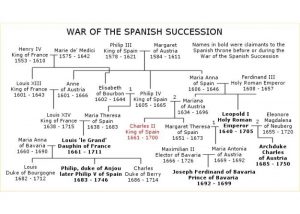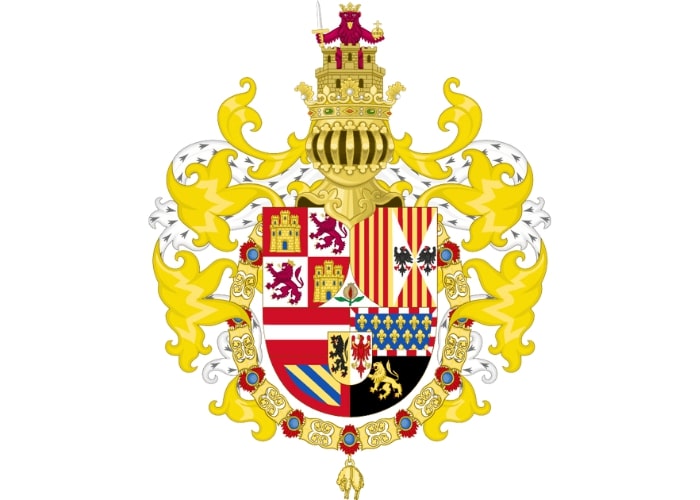‘You have to know the past to understand the present’, said Carl Sagan. This phrase does apply to certain issues more than to others. In Spain you can hardly understand the quest for independence of Catalonia if you don’t know the history of this autonomous community. Catalonia has played an important role in Spanish history since the Middle Ages, as have the medieval power blocs of Aragon and Castile. We have divided this history into 4 chronological timeframes. This is part 3 about the 18th to the 20th century. You can read part 1 here and part 2 here.
War of Succession, more power to Mádrid, Catalan nationalism
In 1700 Carlos II, under whose reign Catalonia had slightly recovered economically, died childless. He himself a Habsburger had chosen a Bourbon, Philips V as his successor. The Habsburgs did not accept this transfer of property and power to the Bourbons. England, the Netherlands, and Austria also saw this succession would produce a strong Spanish-French power block in Europe.
Military authority of Catalonia
Within Spain, Aragon feared that the balance of power would turn even further in Castile’s favour. The power struggle between the two royal houses for the throne in Spain led to the War of Succession (1705 – 1714). After the withdrawal of support for Philip V, the Bourbon, in favor of a Habsburg, and the loss in the war of succession (Sept 11, 1714) Catalonia came under the military authority of the new king (Felipe V of Bourbon) in 1714. September 11 is nowadays the national holiday of Catalonia. Despite commemorating the date of a defeat (the capitulation of Barcelona before the Bourbon troops in 1714), the celebration became a day of defense of the rights and freedoms of the community and an act of reaffirmation of the character of Catalonia and its identity as a nation.
The unity of Spain is enforced after the military calling of Aragon, Valencia and Catalonia: by depriving them of competencies. And authority is centralised to Castilia. Only the Basque Country, faithful to Bourbon, can still retain part of its autonomy. This centralisation also implies an attempt to increase the flow of tax money from the former kingdoms to Castila. Obligations are imposed on Catalonia with regard to the Spanish language. In the 18th century, Catalonia recovered economically. And the first developments of industrialisation took place with the processing of cotton from the Americas. Between 1808 and 1814, Catalonia was occupied for some time during the Napoleonic wars and even annexed by the French.
War of succession
The regimes of Ferdinand VII (1808 – 1833) and his daughter Isabella were decidedly central and corrupt. And this provoked much resistance in Catalonia. But like the Basques, after the death of Fernando VII, many Catalans supported the Carlists in the war of succession. This arose because they expected more autonomy and restoration of old rights (fueros) from the Carlists. In the 19th century, liberalism became an important movement in Spain. Many Catalans wanted a more federal Spanish state and republicanism found a relatively large following among the Catalans. 
Due to industrialisation, Catalonia had undergone strong development in the second half of the 19th century in comparison with the rest of Spain. In addition to “nationalist” feelings and the emergence of a Catalan identity, trade and industrial interests, in particular, played a role in Catalan regionalism. The loss of the colonies in 1898 led to an economic crisis in Catalonia. In the early 20th century, Catalanism began to organise itself politically.


